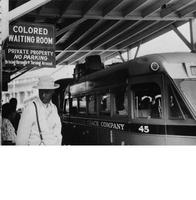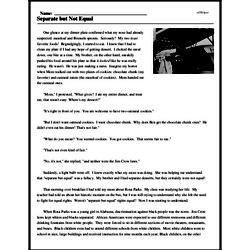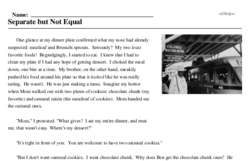Separate but Not Equal
One glance at my dinner plate confirmed what my nose had already suspected: meatloaf and Brussels sprouts. Seriously? My two least favorite foods! Begrudgingly, I started to eat. I knew that I had to clean my plate if I had any hope of getting dessert. I choked the meal down, one bite at a time. My brother, on the other hand, sneakily pushed his food around his plate so that it looked like he was really eating. He wasn't. He was just making a mess. Imagine my horror when Mom walked out with two plates of cookies: chocolate chunk (my favorite) and oatmeal raisin (the meatloaf of cookies). Mom handed me the oatmeal ones.
"Mom," I protested. "What gives? I ate my entire dinner, and trust me, that wasn't easy. Where's my dessert?"
"It's right in front of you. You are welcome to have two oatmeal cookies."
"But I don't want oatmeal cookies. I want chocolate chunk. Why does Ben get the chocolate chunk ones? He didn't even eat his dinner! That's not fair."
"What do you mean? You wanted cookies. You got cookies. That seems fair to me."
"That's not even kind of fair."
"No, it's not," she replied, "and neither were the Jim Crow laws."
Suddenly, a light bulb went off. I knew exactly what my mom was doing. She was helping me understand that "separate but equal" was a fallacy. My brother and I had separate desserts, but they certainly were not equal!
That morning over breakfast I had told my mom about Rosa Parks. My class was studying her life. My teacher had told us about her historic moment on the bus, but I was still trying to understand why she felt the need to fight for equal rights. Weren't "separate but equal" rights equal? Now I was starting to understand.




